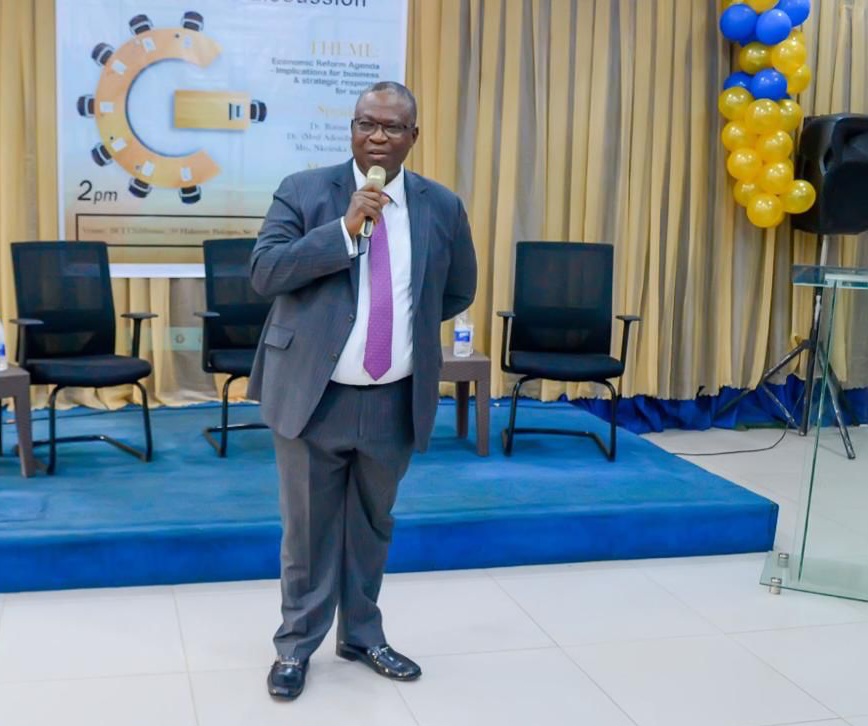Business leaders from various sectors met in Lagos to examine the economic reform agenda of the government and find strategic measures to cushion the effect of fuel subsidy removal on businesses and organisations.
The business leaders at a roundtable, themed: “Economic Reform Agenda: Implication for Businesses and Strategic Response for Survival”, organised and hosted by the Business Club Ikeja (BCI) at Alausa, Ikeja, commended the Federal Government’s move, and suggested temporary adjustments.
Dr. Rotimi Oladele, a seasoned scholar and Executive Secretary at the Institute of Entrepreneurs, who spoke at the event, urged Nigerians to join the government in positive policy marketing.
Oladele said that to make the economy better, Nigerians need to make individual business strategies to tackle the situation, adding: “Until individuals see the Nigerian economy as their own, the country will not go anywhere.”
The Institute of Entrepreneurs executive secretary, who commended the Federal Government over the fuel subsidy removal, urged the citizens to “support the government by analysing their policies, taking out positive decisions and steps, as well as market them to the rest.”
Saying that the business leaders will monitor to ensure that the government is following what it promised the citizens, Oladele noted: “With that, we can be focused towards development.”
He tasked Nigerians on the role to ensure that they partner with the government to analyze the policies and how they are affected, as well as how they can benefit from the government’s policies.
Oladele urged Nigerians to be patient with the Bola Ahmed Tinubu-led administration on the removal of fuel subsidy. He said that it was well intended for the citizens.
At the roundtable, moderated by Prof. Anthony Kila, director of the Commonwealth Institute of Advanced and Professional Studies (CIAPS), Dr. Adesola Falaiye, a corporate law expert, spoke on “Removal Of Subsidy and its Impact on Business.”
Falaiye urged business men and women, as part of solutions to the subsidy removal, to adopt alternative measures to energy while doing business.
The accredited mediator and managing director and chief executive officer of Afkar Printing and Publishing Company, urged business owners to improvise in all they do so as not to feel the subsidy removal impact, adding: “If your operation allows solar alternatives like inverter, you can adopt it.”
Falaiye urged Nigerians to try as much as possible to manage their logistics in order to save money and time, adding: “Most meetings can be done through zoom. Embrace use of all-encompassing technology and collaborate with others to make bulk purchases in order to save money.”
Nkeiruka Nnamdi, a human resources expert and director, Human Capital Management, PKF Professional Services, was urged by Prof Anthony Kila to speak on “Zero Cost Intervention,” urged business owners to be “empathic with their workers, be open to them, let them have a feel of what the business is going through.”
She called for the need to engage the workers, as well as make them feel that they are part of the business
Also speaking at the event, Dr. Dele Makanjuola, former Chairman Vitafoam Plc urged Nigerian Business Leaders to study and emulate asian and other expatriate leaders who are still making profits regardless of how harsh the economy is in the country.
The economic roundtable according to Business Club Ikeja President Chief Tajudeen Akande is part of efforts by BCI to help business leaders get together, develop relationships to share opportunities and find solutions to issues affecting all.








I think this is the first thing they should have done before removing subsidy,the subsidy removal has really crumble the economy